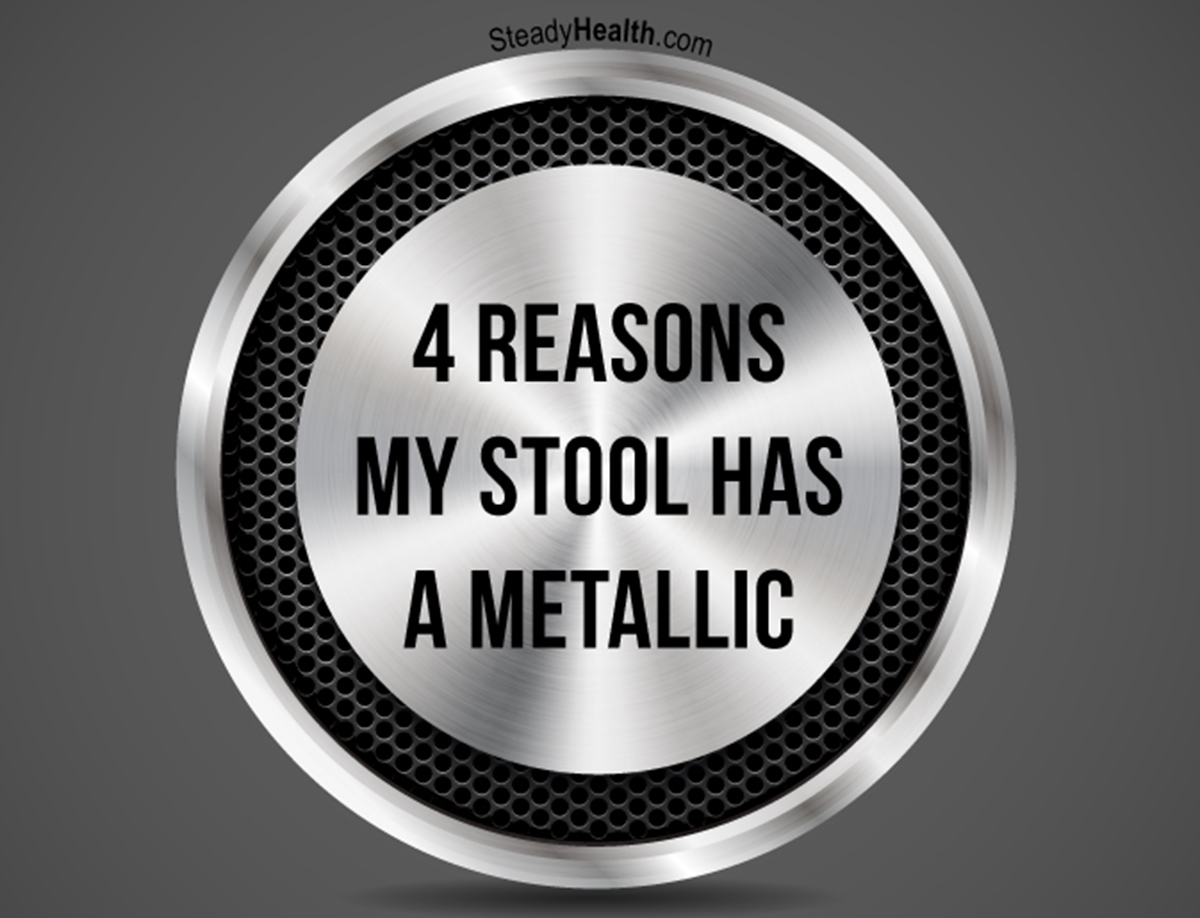Stools can give us a lot of insight into the health status of our bodies.
As we have seen in our other "intestinal investigations", frequent bowel movements can shed light onto some possible conditions that we may be suffering from. The foods we eat, the things we drink, and potentially underlying pathologies, can all play a role as to having such a condition.
Not only is the frequency of stools a point of concern at times for patients, but the consistency and smell of the stools can also be a concern. If stools have a stringy shape, it can signify that we are suffering from potential bowel obstructions due to problems with our diets. Stools can also have a metallic smell which could be problematic at times.

Metallic-smelling bowel movements: Medication side effects?
When it comes to drugs, there are some potential drugs that can cause your stool to become foul-smelling. Antibiotics are named that because of their "anti-cell life" mechanism of action [1]. The goal of antibiotics is to kill cells, but the ingredients that comprise most of these medications are unable to selectively attack only bad cells. What happens as a result is that antibiotics medications are able to kill not only bad microbes but also good microbes that help your body function.
In the intestinal tract is where this effect is most obvious, since helpful bacteria play a crucial role in the digestive process.
When the ratio of good to bad bacteria changes, there is a resulting change in the composition of microbes in the.intestine. This disturbance can lead to diarrhea, constipation, gas, and foul-smelling stools. These gastrointestinal discomforts are all common side effects of most antibiotics, and the healthy flora that once made up your intestinal tract will quickly normalize in a week or two.
There are no risks to your body during this time period and it is only a matter of embarrassment and worry for patients as their body normalizes and goes back to what it once was as healthy bacterial colonies thrive again. [2]
Iron supplementation and metallic bowel movements
Another potential reason why your stool has a metallic smell could be any iron supplementation that you may be taking. Women are more likely to suffer from anemia than men due to their menstrual cycles. Anemia is just a medical diagnosis for a condition where we do not have enough iron or hemoglobin in the blood [3].
Anemia can lead patients to feel fatigued, without energy, and pale. It is estimated that in the United States, 6 percent of the population meets the criteria for a diagnosis of moderate to severe anemia [4]. In a traditional Western diet, there is an abundance of foods like vegetables and fortified cereals that are teeming with high levels of iron to make this problem less likely. If you look at a country in the developing world, however, prevalence rates for anemia can be as high as 60 percent of the population.
When patients are prescribed iron supplementation to fight iron-deficiency anemia, what can occur is excess iron will be excreted through your intestinal tract and lead to a metallic smell in the toilet bowl when you are finished with your business. This metallic smell resulting from excess iron is entirely without risk for the patient but can also be problematic and uncomfortable. [5]
Inflammatory bowel conditions that can cause your stool to smell like metal
Another cascade of diseases that will be commonly associated with metallic-smelling stools can be linked to inflammatory bowel conditions. Diseases like Crohn's disease, Ulcerative Colitis, or Celiac disease can all be associated with metallic-smelling stools because of the underlying pathology seen in these chronic conditions. In these cases, this is a condition where bleeding occurs throughout the inflammation of the intestinal mucosa. When this occurs, patients are subjected to high amounts of bleeding within their stools. [6]
The metallic aroma seen in bowel movements with this type of pathology comes from the abundance of hemoglobin and iron now in the stools. You may start to suspect that this could be a problem if you notice that your stools are a much darker color than usual.
These will be diseases that manifest at a young age in patients and most cases are diagnosed by the time a patient reaches 30 years of age. The best way to avoid metallic bowel movements as a side effect of inflammatory bowel conditions is to start treatment for the condition as soon as possible. The key to this is having a consultation with a gastrologist in order to determine what could be the cause of this strange sensation. [7] Symptoms will be an obvious sign of frequent bowel movements that may be darker than normal.
Colorectal cancer: A serious cause of metallic-smelling stool
The last important differential that you need to consider when your stool has a metallic smell is the possibility of cancer. Colorectal cancer will also increase bleeding through similar mechanisms seen in inflammatory bowel syndromes, but the key difference is that patients will typically be much older in age. It is common not even to start screening for colorectal cancer until a patient reaches the age of 50. A diet high in meats, especially red meat, and a family history can point to colorectal cancer as being a more likely cause of metallic-smelling stool. [8]
The bottom line: Get checked out if your stools smell metallic
Clearly metallic-smelling bowel movements may be the sign of something entirely harmless like iron supplements or antibiotics. Unless you can identify an obvious cause, however, stool with a metallic odor should be reported to your physician for further investigation. As we have seen, this symptom can point to a serious underlying pathology, as well.
- Photo courtesy of SteadyHealth.com


Your thoughts on this